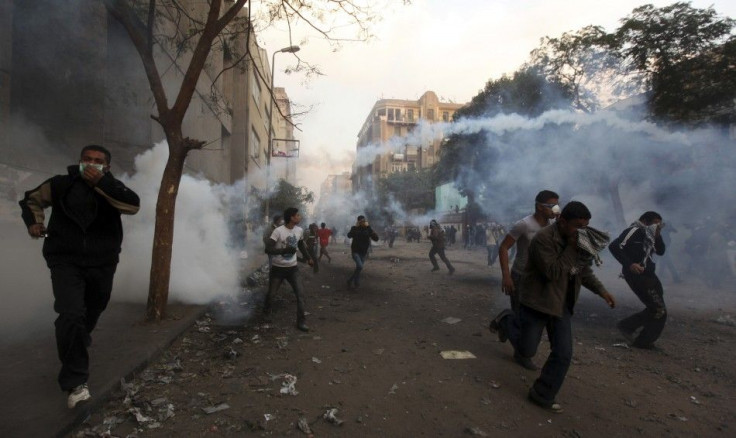Egyptian Cabinet Resigns Amid Burgeoning Protests

With key parliamentary elections only a week away, Egypt has once again spiraled into turmoil as thousands of protestors in Cairo's Tahrir Square called for the ousting of the military-led, interim civilian government, and getting what they chanted for as the country's army-appointed government handed in its resignation Monday.
For the third straight day, swelling crowds -- growing well over 10,000 after nightfall -- clashed with security forces in violence that has killed at least 24 people. The protestors are now demanding that the military immediately announce a date for the handover of power to a civilian government. Tahrir Square notably served as the birthplace for the Arab Spring uprisings.
With news of the Cabinet's move, the crowds broke out into cheers, chanting God is great, and resuming their previous chants of the people want the ouster of the field marshal, a reference to Field Marshal Hussein Tantawi, the head of the council of generals that has ruled the country since the February 11 fall of President Hosni Mubarak, CBS News reported.
Egypt's ruling Supreme Council of the Armed Forces, or SCAF, which is headed by Tantawi, rejected the resignation of Prime Minister Essam Sharaf's cabinet until a suitable replacement could be named, according to a statement read on the official MENA news agency.
If the resignation is accepted, it threatens to derail parliamentary elections scheduled for Nov. 28. But many Egyptians have considered Sharaf's government as unwilling or incapable of moving forward with democratic reforms -- or quelling the rising turmoil and economic crises across the country.
On Saturday, violence escalated when police tried to clear several hundred protestors from the square. By Monday, thousands of protestors were battling police. Consequently, police used tear gas, rubber bullets and birdshot to clear protestors who fired back with rocks, pieces of brick and Molotov cocktails, The Wall Street Journal reported.
White House spokesman Jay Carney said Monday that the Obama administration was deeply concerned by the violence in Egypt.
We call for restraint on all sides so that Egyptians can move forward together to forge a strong and united Egypt, Carney said.
The European Union and the Arab League also called for calm, while Amnesty International condemned the violence.
While the Egyptian authorities have a duty to maintain law and order, they must not use excessive force to crack down on peaceful protests, something that poses a severe threat to Egyptians' rights to assembly and freedom of expression, the London-based group said in a statement.
© Copyright IBTimes 2025. All rights reserved.





















